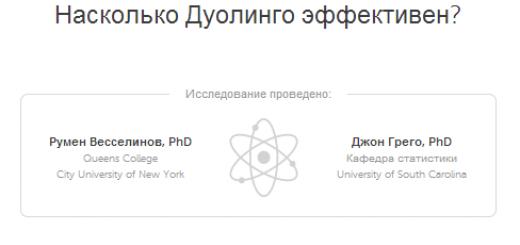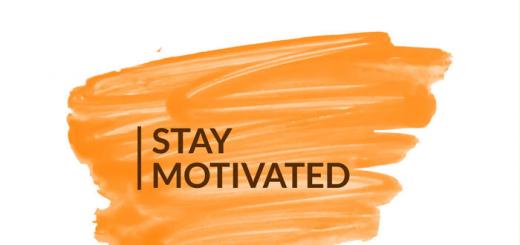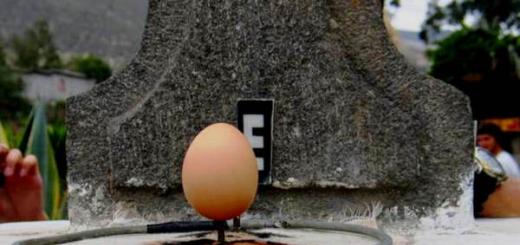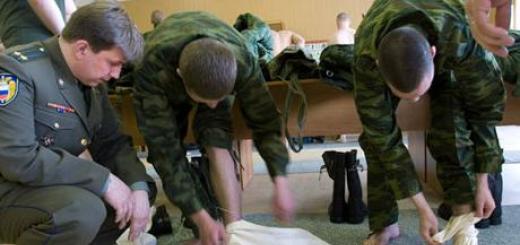- Lack of a rich extracurricular program. Every self-respecting in the UK opens numerous sports and creative clubs and studios, choirs and orchestras, drama workshops for students - international colleges are focused almost exclusively on studying students after grade 9 or after grade 11, with an emphasis on the academic component of the course
- Also in boarding schools in England and the UK, traditionally, much attention is paid to the education of etiquette and good manners, personal qualities - again, international colleges care mainly about the progress of their wards. It is assumed that by the senior grades, children have already learned how to behave and are ready to present themselves in society as a full-fledged harmonious personality.
- Small study groups and classes - usually no more than 6 people, and individual lectures and seminars can be held in mini-groups of 2-3 people
- Compared to British universities, getting a bachelor's or specialist's degree, a professional certificate in a college will cost about 1.5-2 times cheaper - the cost of education is much lower almost everywhere. At the same time, diplomas from good colleges are valued no less! Of course, the lower price is a significant plus for both Russian and foreign students.
- All curricula are compiled and updated in accordance with the modern requirements of society and employers - which means that graduates have the highest chances of successful employment
- Strong practical orientation. If you are preparing to enter a university, the lion's share of your study time will be occupied by academic and language training. If you get a degree - a lot of attention is paid to the practical application of knowledge, internships and industrial practice: thanks to this, college graduates quickly become in-demand, qualified specialists
- If necessary, you can transfer from program to program without taking a bunch of additional exams - usually it is enough just to confirm a high level of knowledge and English (for example, provide a report card and a language certificate /).
International Colleges in the UK: Core Curricula
- Enhanced academic preparation (2-6 months): an excellent opportunity to deepen knowledge in priority disciplines (usually 1-3 subjects are chosen) before enrolling in a university
- (8-9 months) - a comprehensive pre-university program: subject preparation + intensive course of academic English
- GCSE (usually 1 year): a program for completing a lower secondary education course, usually in Britain, students complete it by the age of 15-16
- A-level (usually one and a half years, sometimes two): the gold standard of British education, which makes it possible to enter the best universities in the world without additional entrance exams and tests. In-depth, complicated study of 3-5 selected subjects almost at the university level
- Certificate or diploma (32-52 weeks): regular or advanced level (Advanced). Allows you to start working immediately after graduation - this is very convenient for specialties that do not require deep theoretical knowledge (such as medicine, law, architecture, etc.)
- (3-4 years) - the first stage of higher professional education, which makes it possible to work not only in junior positions (as a certificate or diploma), but also to qualify for rapid career growth.
How to choose the right international college in England and the UK?
In order to choose the right educational institution for high school students, there are several key principles and parameters - see the following list:
- Decide on the most priority specialties that you plan to study at British universities and higher schools
- Check out the rankings of British universities - to do this, contact our specialists, see the indicators of The Times, The Daily Telegraph and other authoritative commissions. Choose for yourself those that best meet your requirements and needs. Don't stop solely at and: many specialized universities that correspond to your chosen specialties may be even more suitable. For example, if you want to pursue a career in business and management, look to and , as well as the Manchester University of Science and Technology and the renowned
- Check - perhaps some of the international colleges you have chosen support partnership programs with British universities (such partnerships are most common in business areas)
- Perhaps the international colleges you have chosen are themselves qualified to teach undergraduate students! Especially often this opportunity is provided in finance, tourism and hotel business, international relations, information systems, economics, accounting, management, banking. Don't miss this opportunity! In addition, not only bachelor's programs are often offered, but also professional courses and advanced training (for example, a designer, tour operator, make-up artist) - the training period for such programs will be 6-24 months
- Decide what is more important for you - a public or private college. Everything is simple here - the principle is the same as in boarding schools: private ones provide a richer and more diverse infrastructure, but public ones cost significantly less. In general, the educational level is high in both options.
We would advise you to pay attention to the following options - colleges that have long established themselves for Russian schoolchildren and foreign students:
- Abbey College (for example) are the strongest international colleges in England and the UK, located in many cities in the United Kingdom. Intensive academic preparation and high professionalism of teachers help graduates to easily enter even such elite educational strongholds as Cambridge and Oxford
- CATS College (for example,) is a very extensive network of international colleges in Britain, which is in the TOP-3 in terms of the level of educational programs for high school students. There are special programs for preparing for Oxbridge, as well as for medical faculties (traditionally, the highest competition for applicants is observed for the latter)
- Bellerbys College (for example,) - the colleges of this network are invariably in the TOP-30 in the country, and graduates, respectively, enter universities from the TOP-30 of the UK and the world
- - a young London international college can be proud of its statistics: more than 90% of foreign graduates successfully enter British universities and higher schools. Special programs for admission to specialties with high competition: medicine, pharmaceuticals and veterinary medicine, dentistry.
UK College Rankings 2018 & 2019 - Best Institutions List
UK Best Colleges Ranking 2018
| № | A/A* % | Name | Day/Board | boy/girl | Day GBP | Board GBP |
|---|---|---|---|---|---|---|
| 1 | 88.68 | Both | co-ed | 16,600 | 42,750 | |
| 2 | 83.54 | Both | co-ed | 21,000 | 42,000 | |
| 3 | 81.43 | Both | co-ed | 14,280 | 39,900 | |
| 4 | 64% | Both | co-ed | 29,000 | 45,000 | |
| 5 | 58.33 | Both | co-ed | 28,950 | 43,428 | |
| 6 | 54.17 | Both | co-ed | 27,060 | 38,940 | |
| 7 | 53.71 | Both | co-ed | 29,000 | ||
| 8 | 53.37 | Both | co-ed | 23,850 | 38,700 | |
| 9 | 47.21 | Both | co-ed | 15,900 | 39,990 | |
| 10 | 44.09 | Both | co-ed | 26,490 | 41,775 | |
| 11 | 42.55 | Both | co-ed | 12,600 | 30,300 | |
| 12 | 39.29 | Both | co-ed | 24,990 | 44,775 | |
| 13 | 32.94 | day | co-ed | 28,305 | ||
| 14 | 31.01 | Both | co-ed | 27,060 | 43,704 | |
| 15 | 30.53 | Both | co-ed | 12,750 | ||
| 16 | 30.50 | Both | co-ed | 24,000 | 48,000 | |
| 17 | 29.75 | Both | co-ed | 21,000 | 48,000 | |
| 18 | 28.65 | Both | co-ed | 18,000 | 36,900 | |
| 18 | 24.86 | Both | co-ed | 24,990 | 49,980 | |
| 20 | 24.83 | Both | co-ed | 23,000 | 50,500 | |
| 21 | 20.93 | day | co-ed | 16,050 | ||
| 22 | 16.39 | Both | co-ed |
21 Best Residential Colleges in England 2019 by Smapse Education
Ranking 2020: 33 top schools and colleges in London and suburbs
| 1 | |
| 2 | |
| 3 | |
| 4 | |
| 5 | |
| 6 | |
| 7 | |
| 8 | |
| 9 | |
| 10 | |
| 11 | |
| 12 | |
| 13 | |
| 14 | |
| 15 | |
| 16 | |
| 17 | |
| 18 | |
| 19 | |
| 20 | |
| 21 | |
| 22 | |
| 23 | |
| 24 | |
| 25 | |
| 26 | |
| 27 | |
| 28 | |
| 29 | |
| 30 | |
| 31 | |
| 32 | |
| 33 |
College of England
First letter "i"
Second letter "t"
Third letter "o"
The last beech is the letter "n"
Answer for the clue "College of England", 4 letters:
Eton
Alternative questions in crossword puzzles for the word iton
University of the aristocrats of England
English city on the thames
American industrialist, organizer of the Pugowsh Conferences
Counterpart of the City of Windsor
College for the children of the English Sirs
City famous for college
English college
Word definitions for iton in dictionaries
Wikipedia
The meaning of the word in the Wikipedia dictionary
Iton, or Itoniy - the son of Amphictyon. He had a son, Boeot, from the nymph Melanippe, after whom Boeotia is named. Father of Chromia, wife of Endymion. Hence the temple of Athena Itonia in Boeotia. In another version of the family tree, Eaton is the son of Beoth. Sons of Hippalkim, Electryon, Archilius,...
Encyclopedic Dictionary, 1998
The meaning of the word in the dictionary Encyclopedic Dictionary, 1998
Eton (Eton) city in Great Britain (England), on the river. Thames. College (founded in 1440).
Examples of the use of the word iton in the literature.
Her son, having arrived for the Christmas holidays from Eton, gorged himself, and fell ill with a fever, for which Mr. Pendennis treated him with great skill and solicitude.
Mr. Eton was a well-known supporter of Russian-American rapprochement, to which he contributed to the organization of the Pugwash meetings.
Etonian - graduate Eton, one of the nine oldest prestigious male privileged high schools.
Said since he finished Eton, no one painted him a better image of the creator of the Empire.
As far as Hugh Beringar, at Shrewsbury Castle, the news reached Eton was one of those possessions which, among many other county manors, was taken from William FitzAlan, because this powerful aristocrat, in an armed struggle for the royal throne, took the side of the empress, put Shrewsbury under the banner of Matilda, and then, after the siege by King Stephen and the fall city, fled.
Many foreigners, including Russians, seek to send their child to an English school. And this is not surprising: secondary education in England is the first step towards a brilliant career, and made at a young age, which is important. Studying at one of the private schools in England makes it possible to be guaranteed admission to a British university, and the "crusts" of the universities in the UK are, in fact, the "golden key" that opens the doors of any companies and corporations, including transnational ones, to the graduate.
Thus, the main purpose of foreigners receiving secondary education in England is preparation for entering universities. And we are not talking about a two-year A-Level program (although why not, a great option for a young Russian who received a certificate of secondary education at home), but about full-fledged education in British schools - it takes 5-7 or even 10 years ( only secondary education or primary + secondary).
UK secondary education system
The UK secondary education system is represented by several types of educational institutions. First of all, all schools are done on state and private. However, foreigners are accepted only in private schools - and, by the way, the willingness to pay for education is far from always decisive. Even the most “golden” child will not get into an English school without good academic performance.
In addition, English schools are divided into daytime and pensions. Foreign students can, if desired, enter both of them. When studying in day schools, children who come from other countries live with British families. And for some parents who are afraid to leave their child unattended, this can be a source of concern. Therefore, most often the choice falls on boarding schools in England: thanks to living on the territory of the educational institution, the child will be under round-the-clock care.
And, finally, there are schools in England, as you know, " same-sex» (boys only and girls only) and mixed. It should be remembered that in "single-sex" educational institutions, especially in schools for boys, there is a stricter discipline and more ascetic living conditions.

A few words must also be said about the colleges. In the international colleges of England, which are also classified as part of the school education system, you can enter from the age of 14-15. Education programs in colleges in England are focused specifically on preparing foreign students for admission to British universities. In addition, the situation in these educational institutions is more democratic than in private schools.
Education in private schools in England
Private boarding schools in England are educational institutions aimed at the comprehensive, harmonious development of the personality of students. The training program is very rich - the life of students is painted literally by the minute; Teachers and educators monitor the observance of the schedule. After school and before doing homework, children always go in for sports and art.
Physical education in boarding schools in England is given no less attention than general subjects: each child must choose at least one sport - and there are at least ten of them in any self-respecting school (swimming, tennis, football, volleyball, rugby, golf, horseback riding, cricket, etc.). In addition, the harmonious development of the individual in the UK is considered impossible without a passion for one of the arts, so many schools have their own theater and almost all have orchestras, choirs, jazz groups, dance studios.

Most private schools in England have very small classes: 15-20 students each. The British are sure that it is important for each child not only to give academic knowledge, but also to pay personal attention. Maintaining a balance between the number of students and teachers allows students of British boarding schools to show excellent results in final exams.
Free time for schoolchildren appears only after dinner (if the child managed to do all the homework before it) and continues until going to bed at 10-11 pm. And do not forget about the holidays: the academic year in the UK lasts from September to mid-July and consists of three trimesters. Between the first and second trimester - Christmas holidays, between the second and third - Easter.
Accommodation in private schools in the UK
Most private schools in England are boarding schools: children live in the residence of the school, simply put - in a hostel. The youngest children live in rooms designed for about ten people. Older schoolchildren live in the so-called "dormitories" - these are rather large rooms separated by partitions; thus, each child has his own “corner”, in which a bed, a table for classes and a small locker for clothes and shoes are placed. And only in the upper grades do students find relative solitude when they are settled in single and double rooms.

Meals in British schools are provided three times a day: in the morning - a light breakfast, at noon - lunch, in the evening - lunch. Usually there are several dishes to choose from, including meat, fish and vegetarian menus.
Students are not allowed to leave the territory of the boarding school without permission. And if such conditions of life and study seem unnecessarily harsh to you, then it is better to send the child to an international college - there are more free orders.
However, the whole history of private boarding schools in Great Britain proves that no one has yet died from the “Spartan” life and strict discipline. On the contrary, it is one of the most important factors in educating a personality, "hardening" the will, and, ultimately, obtaining a brilliant education.
How to apply to a private school in the UK?
One of the most common questions asked by parents who want to send their offspring to the UK is: at what age is it best to send their children to private schools in England? It is clear that there is no and cannot be an unequivocal answer to it - it all depends on the nature and individual characteristics of the child. It is believed that adolescents aged 11-13 years (when British students are just moving from primary to secondary school) are easier to leave home and parents than toddlers. On the other hand, if you start studying in England from the age of 8, then by the time you enter secondary school, the child will fully adapt in a foreign country and will speak English at the level of native speakers, which is very important.

Another important question: how to choose a good school? Most foreigners are guided by school ratings, which are published every year in the British media. The first thought is to send the child to one of those elite private schools in England that occupy the top lines of the ratings. However, getting there is not so easy: both the British and foreigners who want to study in the best schools in the country must successfully pass the entrance exams. Well, perfect English is a must.
But at the most prestigious private schools in England, the light did not converge: among the educational institutions of the second and third hundreds of ratings, there are also many good schools. They, as a rule, accept everyone - if there are free places. And this is a great option for children with an average level of English proficiency.

Depending on the choice of educational institution, the package of documents for admission may vary, but, as a rule, all schools in England are asked to provide the following data:
- Graduation statement for the last 2 years.
- Testimonials from teachers.
- Language test results (not lower than 4.5 IELTS points).
It is necessary to apply to private schools in England about a year before the start of studies. There will be more chances to send your child to the UK if you send papers to several schools instead of one.
The cost of secondary education in England
Education prices in England are among the highest in the world. Perhaps, Foggy Albion is inferior in value only to Switzerland. A year of study in an English school will cost from 12 to 40 thousand British pounds sterling, including living expenses.
Additionally, you will need to pay for the flight, medical insurance, registration fee, visa processing fee, as well as pocket money.
International colleges (Six-form Colleges, Tutorial Colleges) specialize in preparing local and foreign students for the GCSE and A-level / IB exams.
You can go to college in England from the age of 15-16. Able and well-prepared students can complete the GSCE and A-level programs in one year (two years are allotted for these programs in regular schools). It is also possible to retake the bad results of the GCSE, A-level exams.
Differences from school
Unlike private schools, colleges in England do not have school uniforms, compulsory sports, choir rehearsals, or theater performances. Students are treated like adults and given more personal freedom.
The main task of the college is to prepare students for the successful passing of exams and admission to a British university. Therefore, all the efforts of teachers are aimed at the academic success of students. Lectures, seminars, laboratory work are held here in small classes, often no more than 6 people. If necessary, the student is taught individually both English and other subjects. Some colleges have very good admission statistics for Oxford, Cambridge and the London School of Economics. Many teachers at these schools are themselves former Oxbridge graduates and, in addition to strong academic backgrounds, help students with interviewing skills.
Training program
Education is conducted according to the English high school program: GCSE, A-level or IB. The following subjects are taught: mathematics, physics, algebra and geometry, chemistry, biology, geography, sociology, political science, law, psychology, classical civilizations, statistics, history, music, visual arts, information technology, English language, English literature, fundamentals of religion, one or more foreign languages (French, German, Spanish, etc.). In addition to the main subjects, each school has additional ones: Latin, accounting, business basics, economics and some others. Depending on the program of study, students choose 4-8 subjects to study.
Many international colleges also have one/two-year Foundation Courses for university applicants. After successful graduation, graduates are enrolled in universities with which there is an agreement on the recognition of the status of these courses. For foreigners who want to get higher education in the UK, this is a very convenient opportunity.
Discipline
The rules of conduct are more democratic than in schools: you can be late for breakfast, not show up for dinner and do your homework at any time free from classwork - they are not punished for this. But absenteeism and laziness are intolerant, and at the slightest problem with attendance and homework, parents will be informed. Students who use drugs and alcohol face expulsion.
The main conditions for successful study in an English college are self-discipline and motivation to study. If you do not have these qualities, then it is better to choose a boarding school where your life will be scheduled by the hour and it will be almost impossible to get out of the schedule.
Accommodation
Students live in student residences or with families. In both cases, they are provided with food and everything necessary for study and recreation. In their free time, colleges organize trips and cultural events for their students.
How to choose an international college in England
The main criterion for choosing a college is the academic success of graduates, the range of subjects offered for study, and the conditions of study and living.
You will need to think about your future specialty and the subjects you want to study. Different colleges have their own strengths and weaknesses, and depending on your choice of subjects, you will need to consider one or another institution. It is also important to find out which universities college graduates go to.
You will need to think about which city you want to study in, and what your wishes regarding accommodation are. Some colleges do not have their own student residence and will only offer homestay accommodation (if you are under 18, self-renting an apartment is excluded).
In some popular English colleges on the Russian market, you will not see a single Englishman, but about 50% of the students will be Russian-speaking. Many agencies and colleges themselves don't advertise this fact, and you may only encounter it on your first day of school.
Therefore, if you are interested in choosing a high-quality and ideal educational institution for you, contact the consultants of the UK Study Center.










